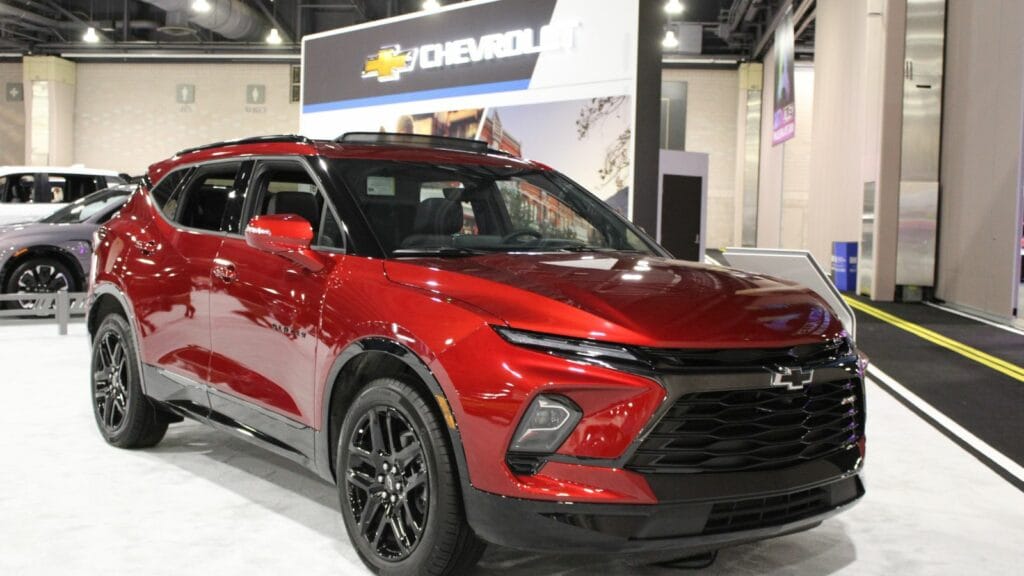Crossovers used to be the darlings of Canadian driveways because they are versatile, spacious, and perfect for everything from winter commutes to weekend escapes. But consumer tastes shift quickly, and some once-beloved models are now sitting unloved on dealership lots. Whether it’s reliability concerns, underwhelming performance, or being outclassed by newer rivals, some crossovers went from hot to forgotten in record time. Here are 22 crossovers Canadians loved last year, but no one wants now:
Chevrolet Equinox
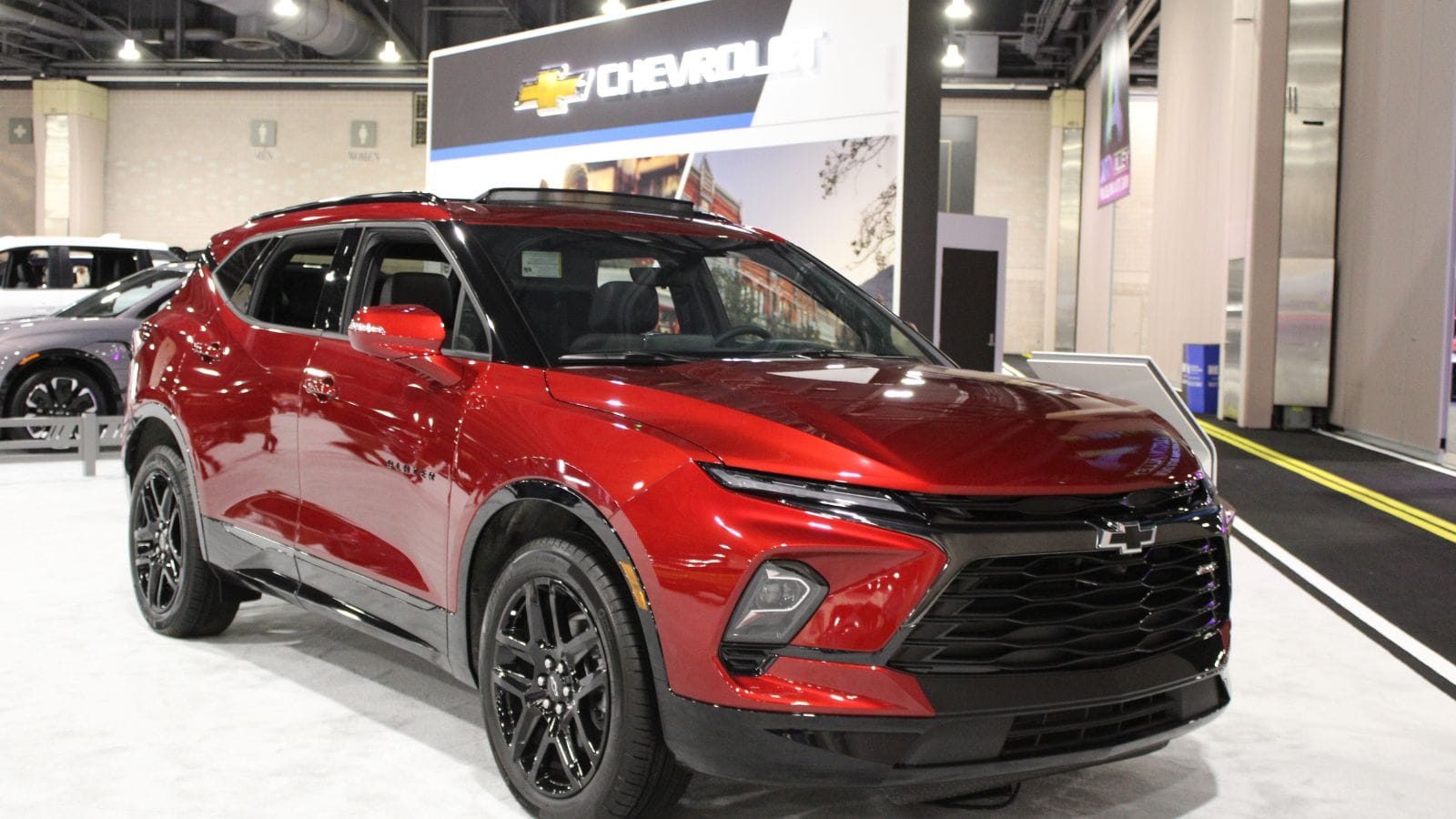
Once a go-to for budget-conscious Canadian families, the Chevrolet Equinox has struggled to keep pace. With only modest updates and a lackluster 175-hp engine, it falls short of matching the refinement and performance of newer rivals, such as the Toyota RAV4 or Mazda CX-50. Interior materials still feel dated, and tech features lag behind competitors. It was popular for its affordability and availability. Still, drivers are now prioritizing efficiency and smarter design, and sales have dipped noticeably this year, with many Canadians trading it in for something more exciting or more reliable.
Ford Edge
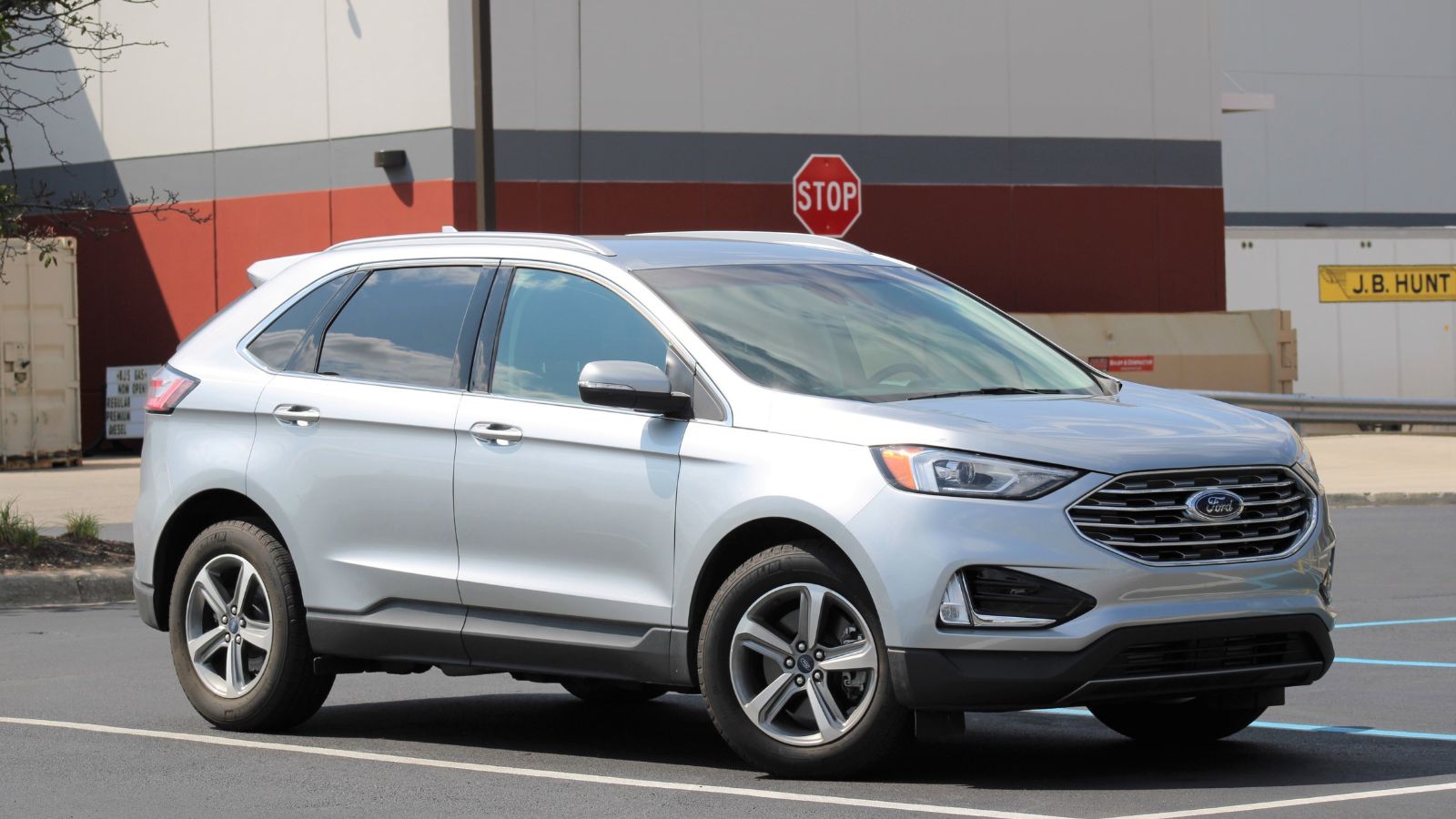
The Ford Edge had a moment as a midsize crossover with real power and style, but that moment seems to have passed. Its aging platform, inconsistent build quality, and clunky infotainment system have left buyers unimpressed. Add to that Ford’s decision to discontinue the Edge shortly, and you’ve got a recipe for plummeting resale value. Last year, it was a practical choice for families and commuters. Still, now, many dealerships report that it is becoming a tough sell, even on the used market, as Canadians are steering toward newer Ford EVs or smaller, more nimble crossovers.
Nissan Rogue
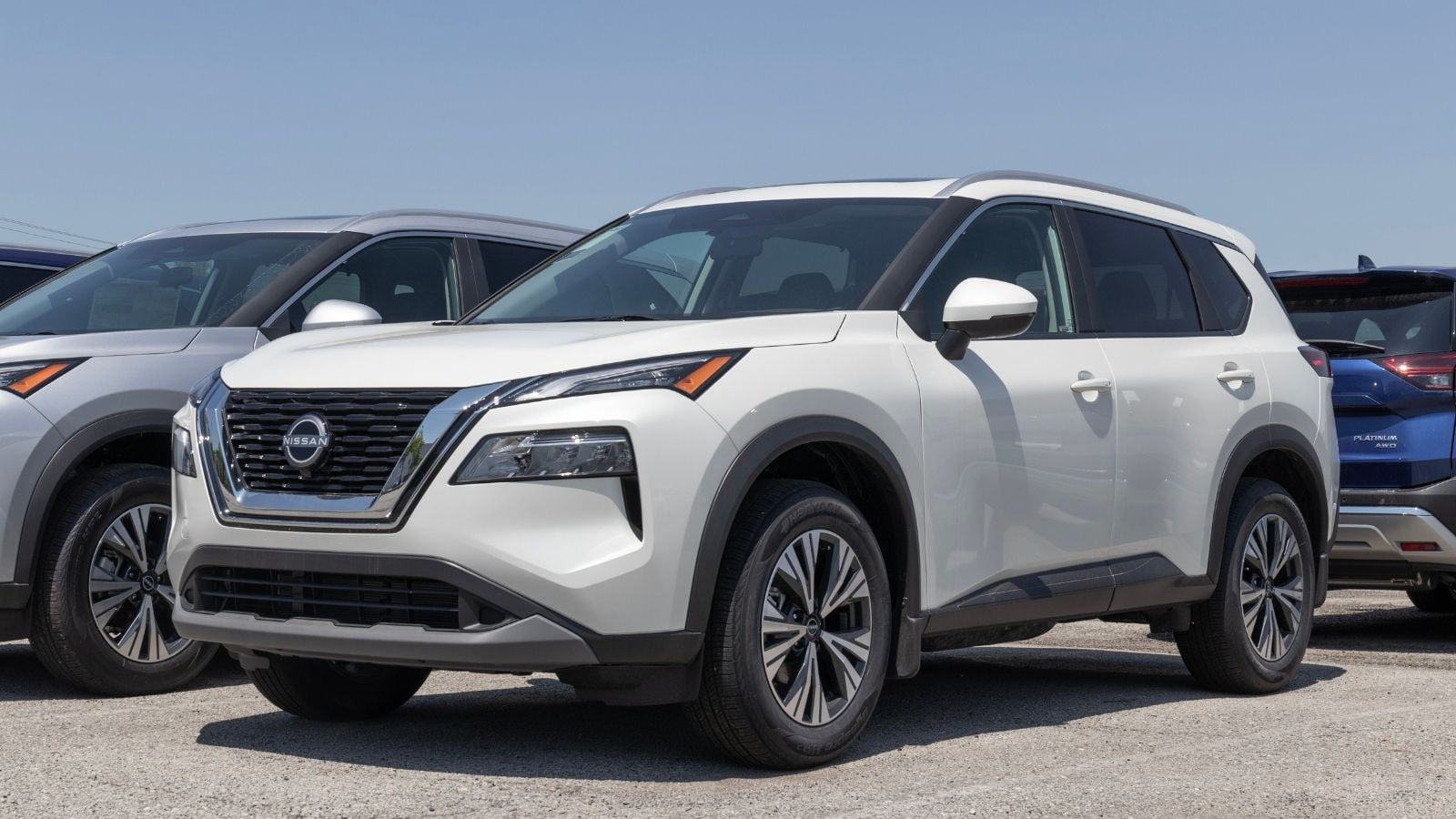
The Rogue was once Nissan’s sales leader in Canada, but oversaturation and quality concerns have caught up with it. While the 2021 redesign introduced a peppier engine and an improved interior, persistent issues with CVT reliability continue to mar its reputation. Newer crossovers in its class offer more advanced safety tech, better AWD systems, and smoother rides, and Canadians are increasingly favoring the Subaru Forester or Toyota Corolla Cross, both offering better fuel economy and long-term dependability. For many, the Rogue’s fall from grace has been swift and unsurprising.
Mitsubishi Eclipse Cross
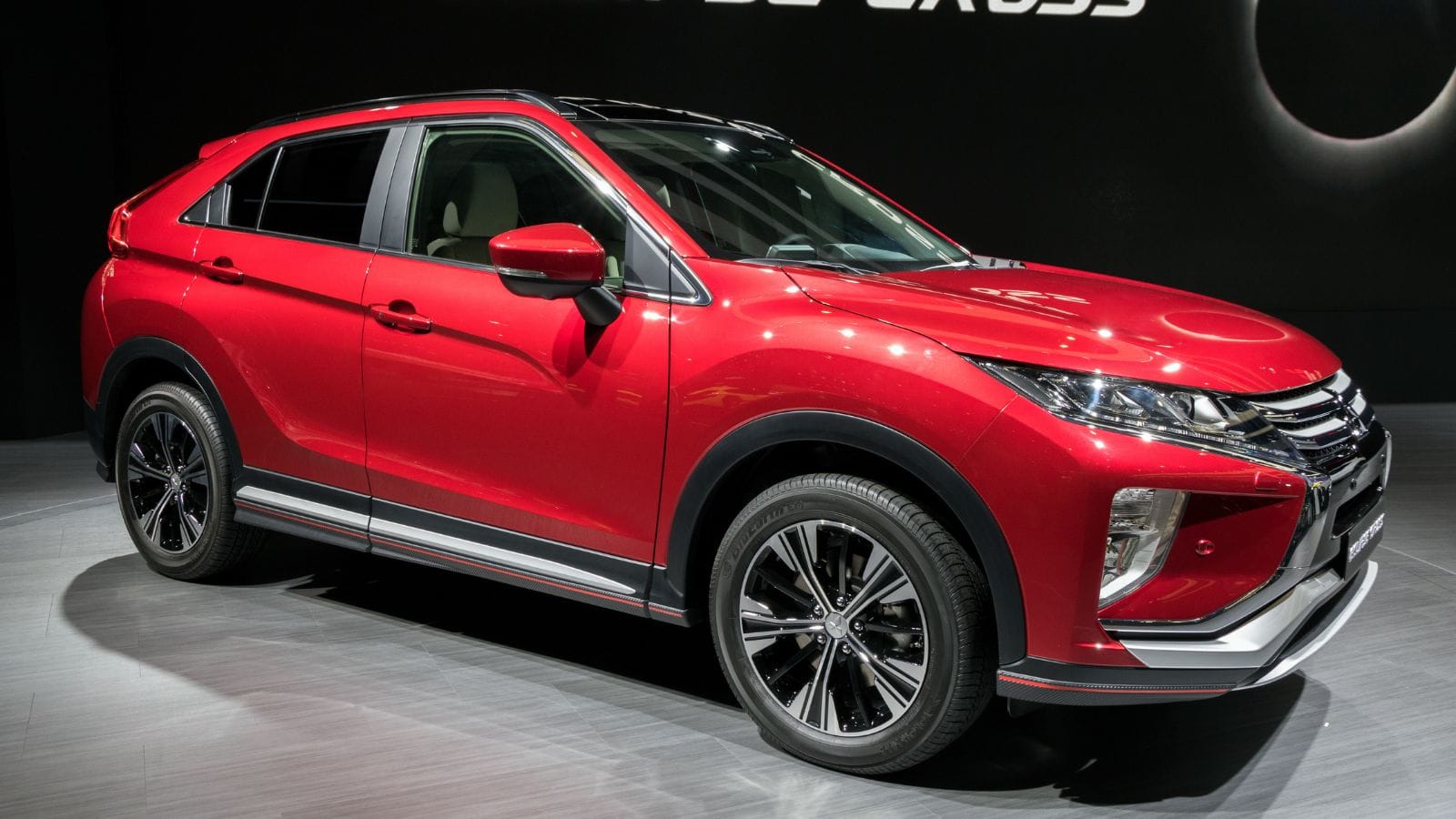
Hyped as a sporty crossover with a recognizable name, the Mitsubishi Eclipse Cross never lived up to the legacy of its coupe namesake or the expectations of Canadian drivers. Its polarizing design, cramped rear seating, and unremarkable 152-hp turbocharged engine turned off many would-be fans. While its warranty remains one of the best in the industry, it has not been enough to save it from sliding sales. Competing models from Honda and Mazda now offer more style, performance, and features, leaving the Eclipse Cross in the rearview mirror of Canadian consumers.
Jeep Cherokee
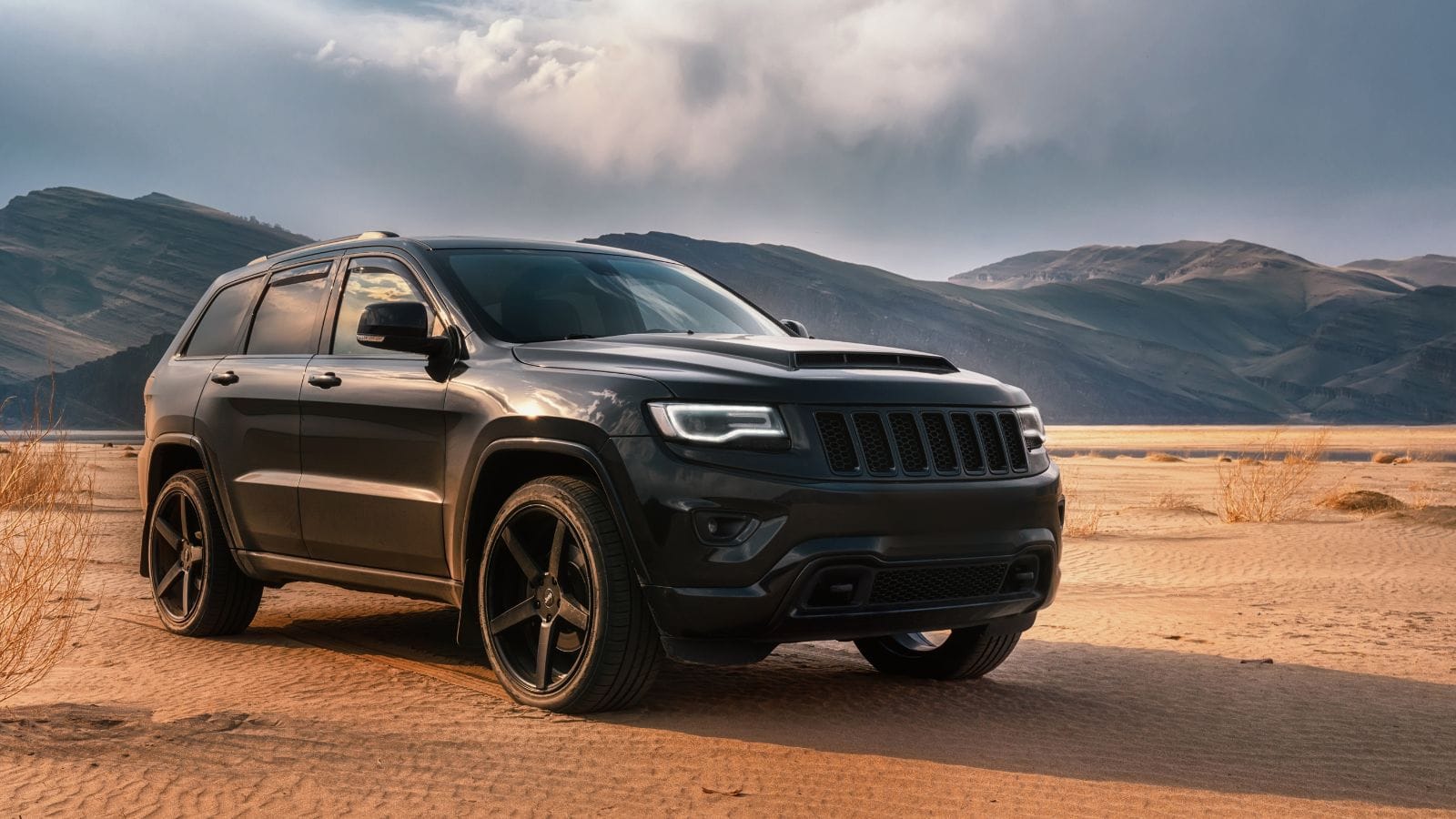
The Jeep Cherokee was once a rugged, trail-capable option with broad appeal, but declining reliability, lackluster fuel economy, and an outdated interior have pushed it out of favor. Canadians appreciated its off-road capability, but many are now unwilling to trade comfort and efficiency for the trail prowess they rarely use. Jeep announced a pause in production for the Cherokee in 2023, leaving buyers uncertain about future support and parts availability. In the current market, more people are opting for crossovers that are better built for everyday use and less prone to mechanical headaches.
Hyundai Tucson (Pre-2022 Models)
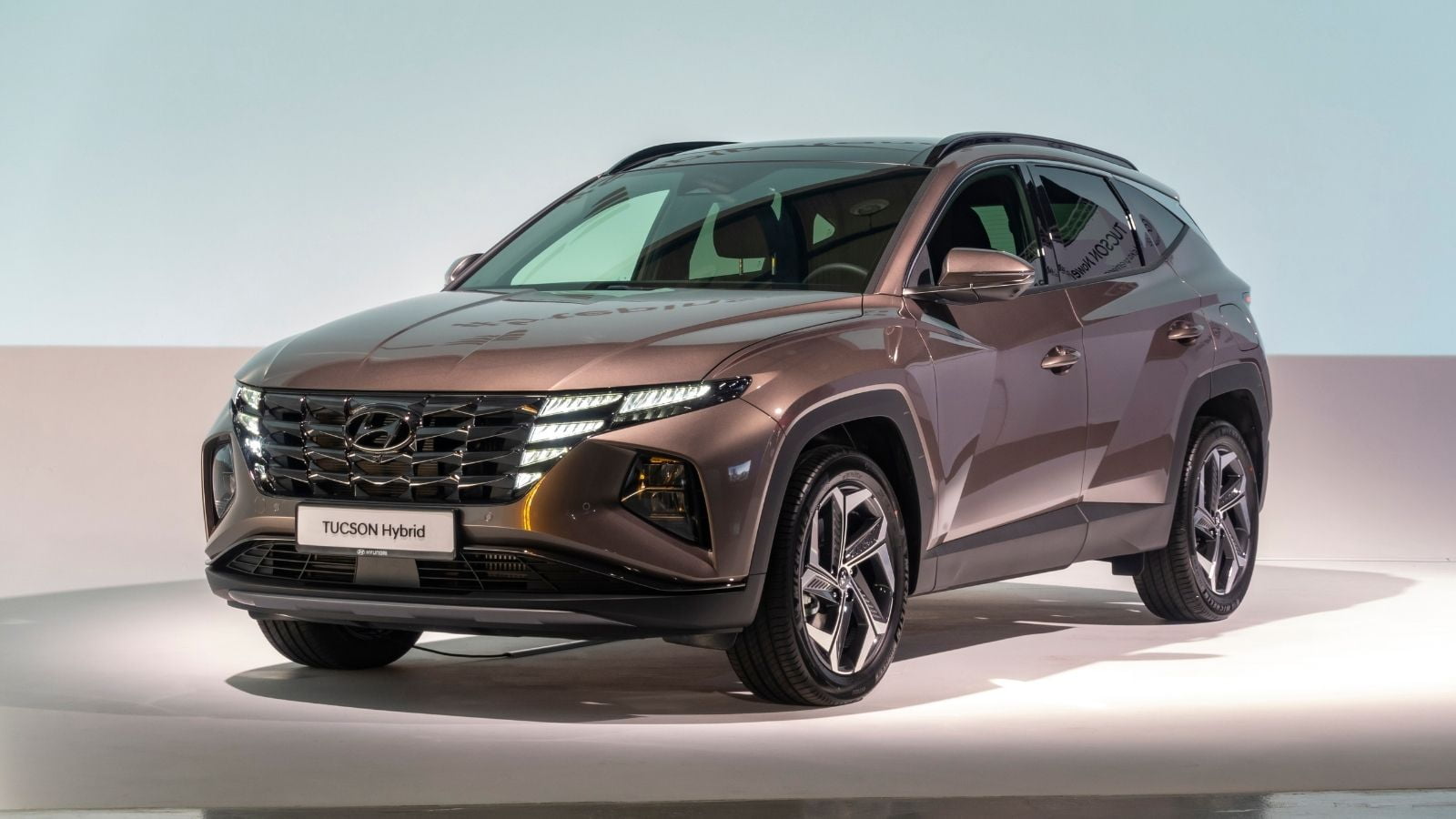
While the latest-generation Tucson has been praised for its bold styling and hybrid options, older models, particularly those from 2019 to 2021, have lost favor rapidly. These earlier editions lack the modern tech and upscale interiors of the latest refresh, and many owners report sluggish acceleration from the base 2.0L engine. In both rural and urban areas, Canadians are trading up for crossovers that feel more future-proof. With steep depreciation and better alternatives from within Hyundai’s lineup, last year’s Tucson is quickly becoming a regular on the used lot.
Volkswagen Tiguan
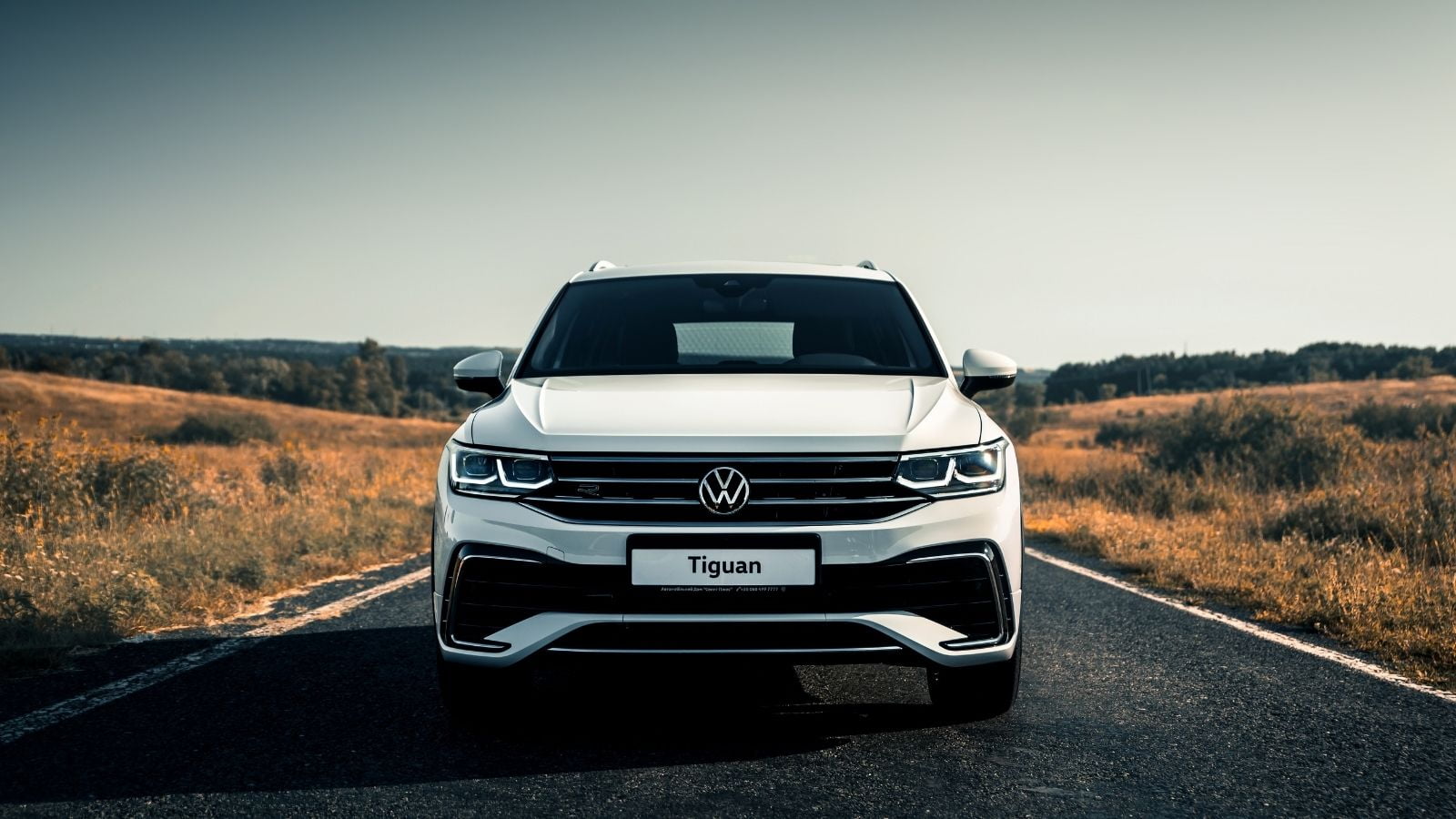
The Tiguan enjoyed strong momentum in Canada thanks to its Euro styling and roomy third-row option. However, over time, its laggy turbocharged engine and reliability complaints, particularly regarding electronics, have diminished its appeal. High repair costs and inconsistent service experiences have led many owners to reevaluate their decisions. At the same time, competing crossovers offer similar space and better fuel efficiency, especially in a country where winter performance is a top priority. For a vehicle once praised as refined and family-friendly, the Tiguan’s popularity has quietly but steadily faded, particularly among suburban drivers who demand peace of mind over brand cachet.
Honda HR-V (Pre-2023 Models)
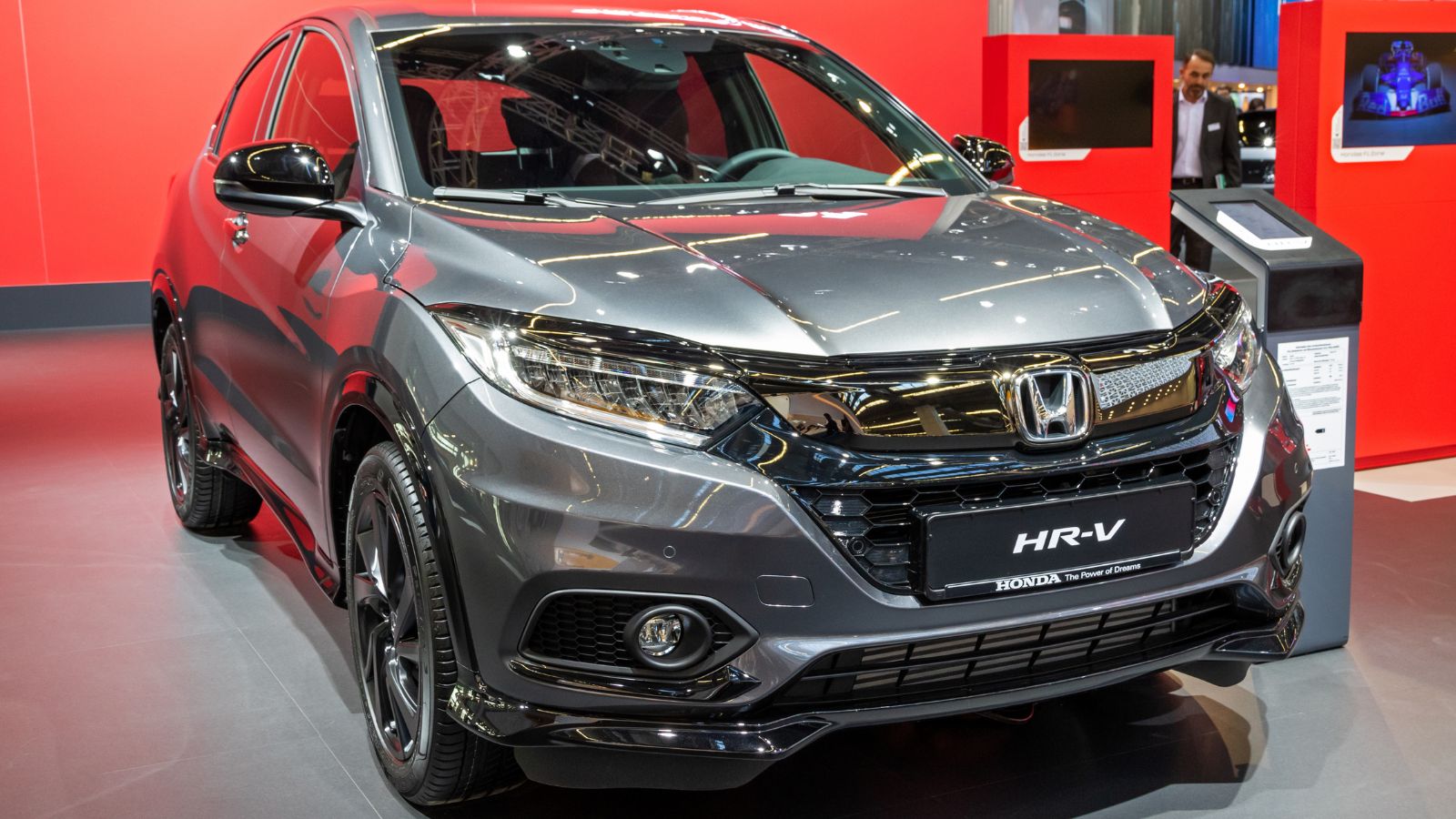
Canadians loved the HR-V for its clever Magic Seat and reliable Honda badge, but the older models (2016–2022) were increasingly viewed as underpowered and outdated. The 1.8L engine struggled with merging onto the highway, and the infotainment system often felt like a tech throwback. The 2023 redesign brought new life to the nameplate, but it also left previous versions feeling obsolete overnight. Many drivers have since jumped ship to competitors with more pep and better winter handling, leaving last year’s HR-V behind in resale limbo.
Subaru Crosstrek (Base Trim)
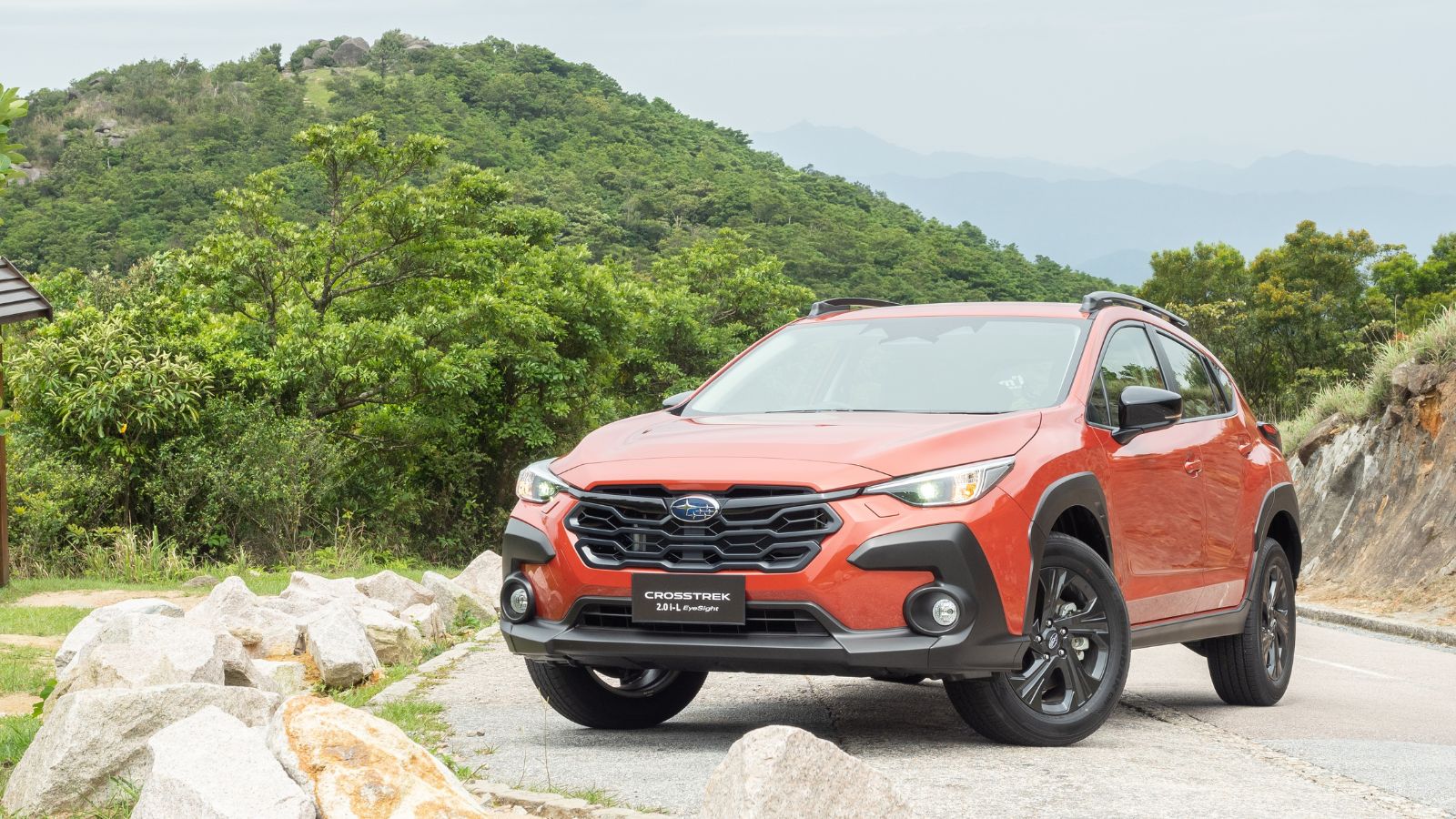
While the Crosstrek remains a favorite overall, base trims with the underwhelming 152-hp engine have seen declining interest. Canadians want more than just AWD and rugged looks; they expect responsive power and updated technology. The newer trims with the 2.5L engine offer that, but last year’s base models now sit unwanted, especially among drivers in mountainous or rural regions where more grunt is needed. Once a top recommendation for young drivers and outdoor enthusiasts, the entry-level Crosstrek has quietly slipped down the rankings in buyer preference lists.
Toyota C-HR
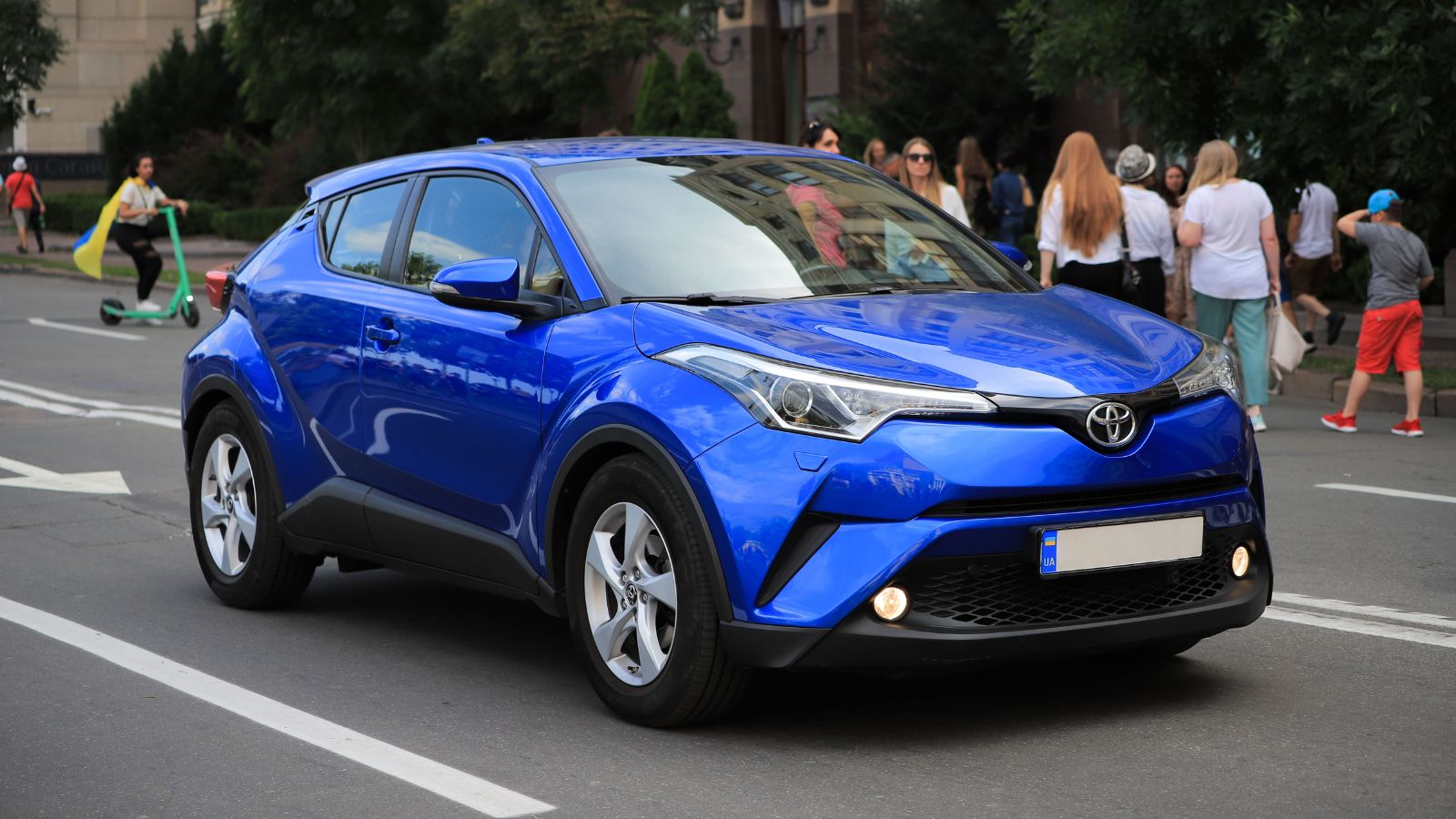
Despite Toyota’s reputation for bulletproof reliability, the C-HR never fully resonated with Canadian drivers, and it has now been discontinued altogether. Its small cargo area, lack of AWD, a major miss in Canadian winters, and underwhelming engine made it a tough sell from the start. Even loyal Toyota buyers admit it felt like a misstep in a crowded segment. As demand dropped off, dealerships quietly pivoted toward the Corolla Cross and RAV4, and although the C-HR’s unique design may still turn heads, most drivers have turned away completely.
Buick Encore
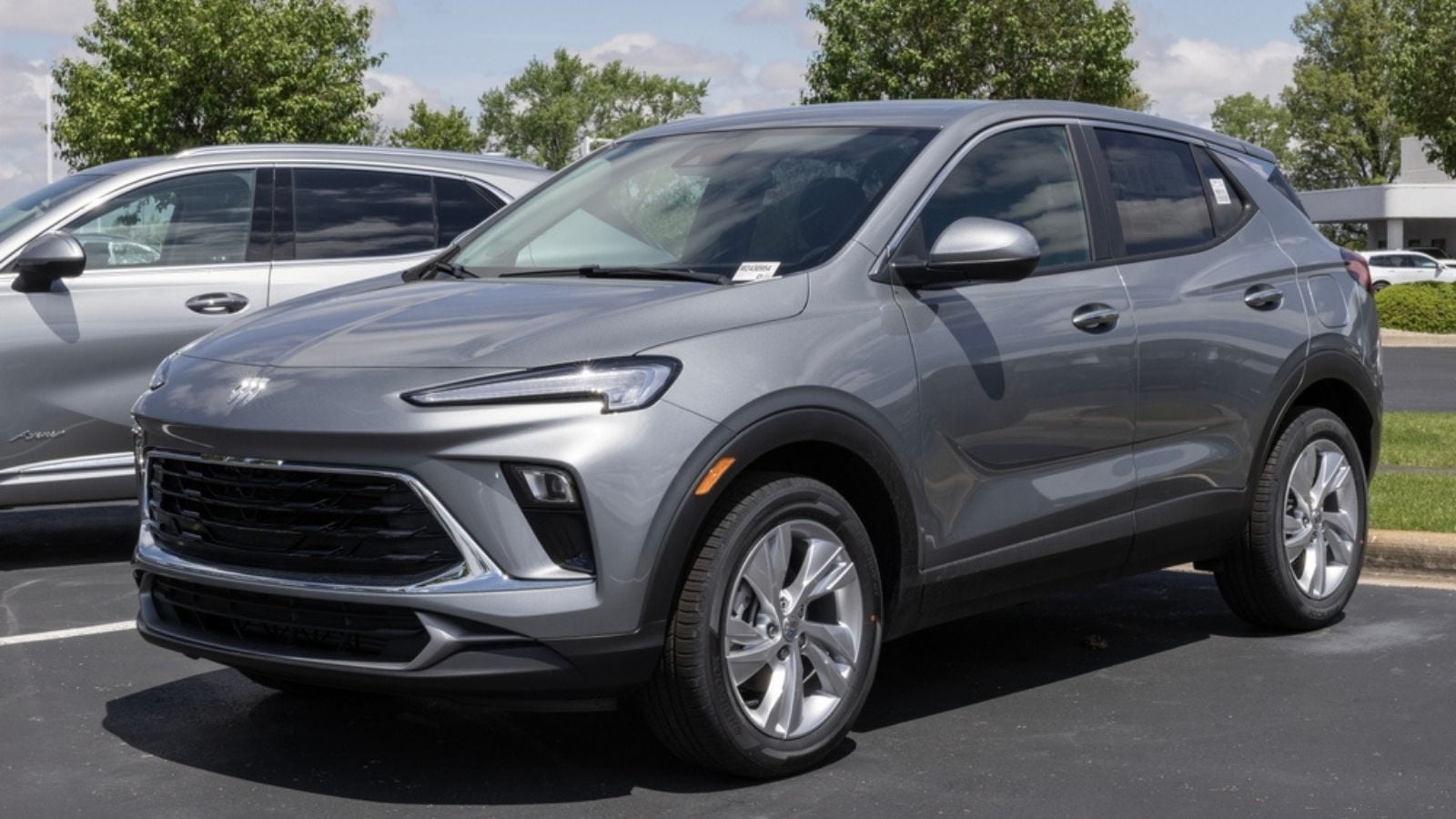
The Buick Encore briefly carved out a niche as a premium-lite crossover, but now it’s mostly ignored on dealer lots. Its small cabin, outdated interface, and unimpressive 155-hp engine have left it struggling to justify its price tag. Canadians once attracted to the badge are now opting for better-equipped compact SUVs at lower prices, some within GM’s own family. With GM discontinuing the Encore altogether, what was once seen as a smart downsized luxury option now feels like a dated compromise.
Mazda CX-3
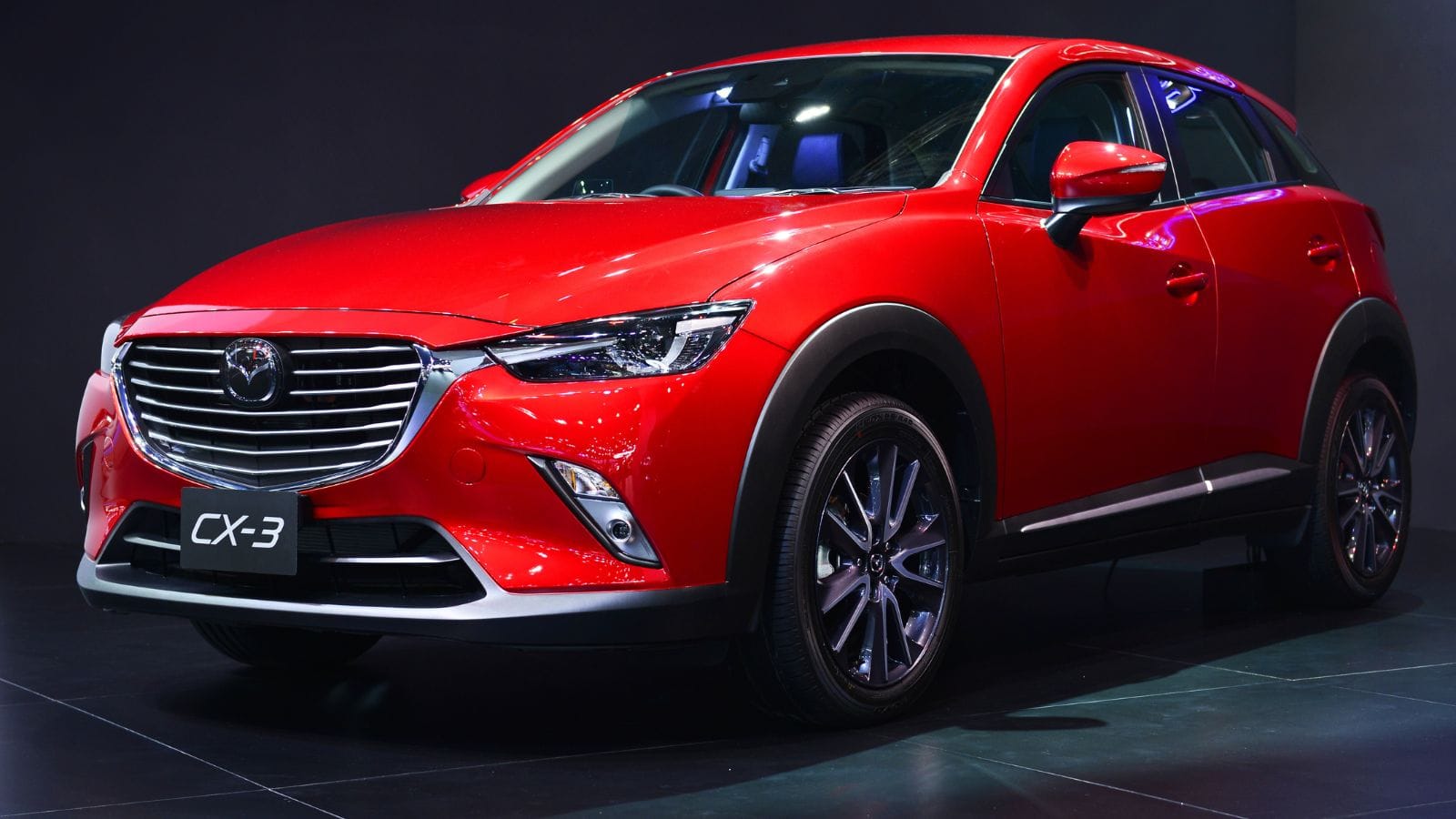
The Mazda CX-3 once stood out for its sporty handling and upscale feel, but that was not enough to overcome its cramped interior and tiny cargo space. Canadians looking for practical utility found the CX-3 fell short, particularly for growing families or those with outdoor gear. Mazda has since phased it out in favor of the larger, better-equipped CX-30. While still stylish and fun to drive, last year’s CX-3 is now largely ignored in favor of more versatile options that can handle Canadian road trips and gear-heavy weekends.
GMC Terrain
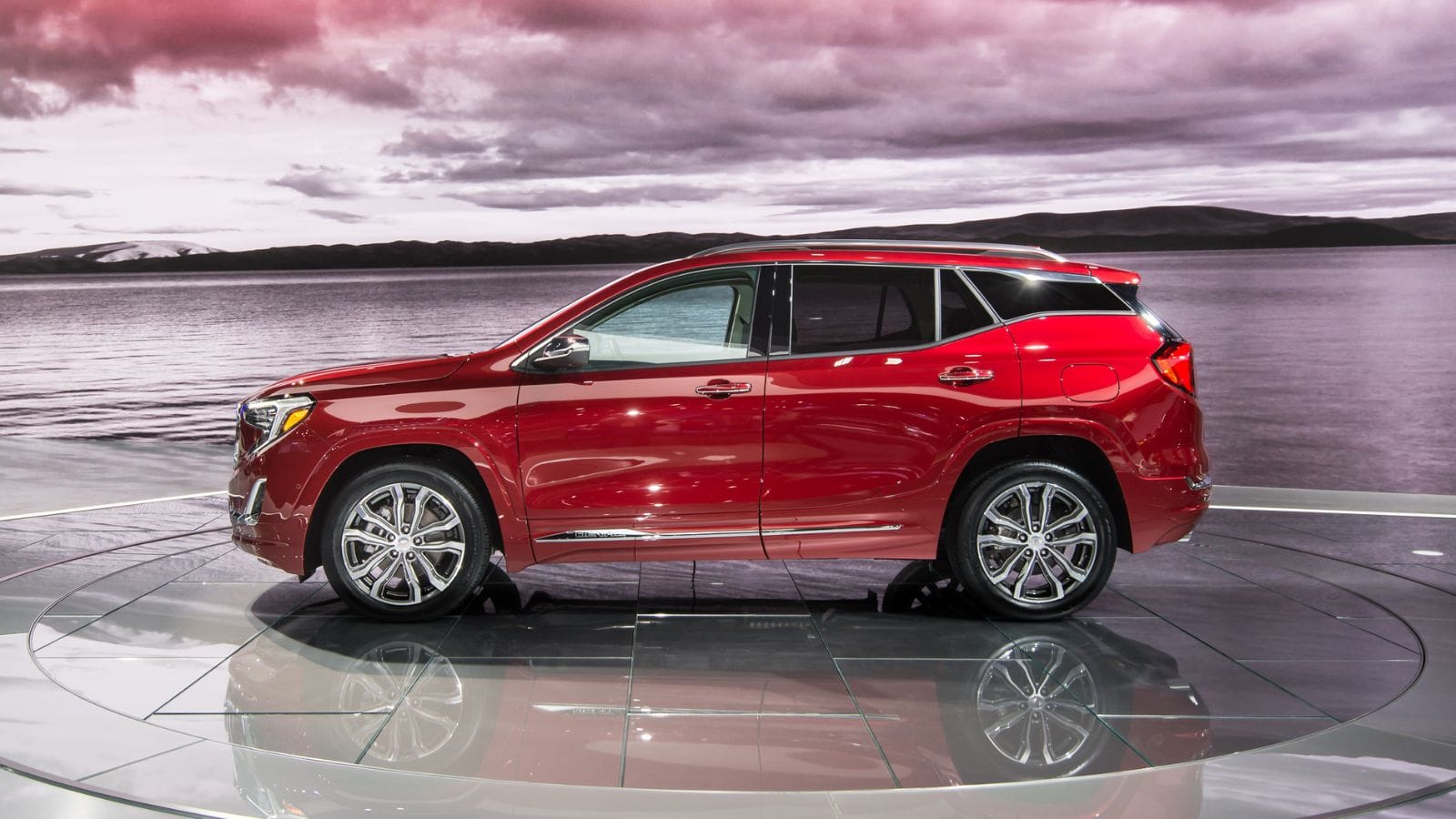
The Terrain once rode high on its rugged styling and roomy feel, but increasingly it has been outclassed. Its standard engine lacks punch, fuel efficiency lags behind rivals, and the cabin materials feel cheap for the price. Canadians looking for value are turning to vehicles that offer more for less, while reliability has also been a concern, with transmission and electrical issues surfacing in some model years. As drivers move toward electrified options or more refined competitors, the Terrain is quietly sliding into obsolescence.
Kia Sportage (Pre-2023 Models)
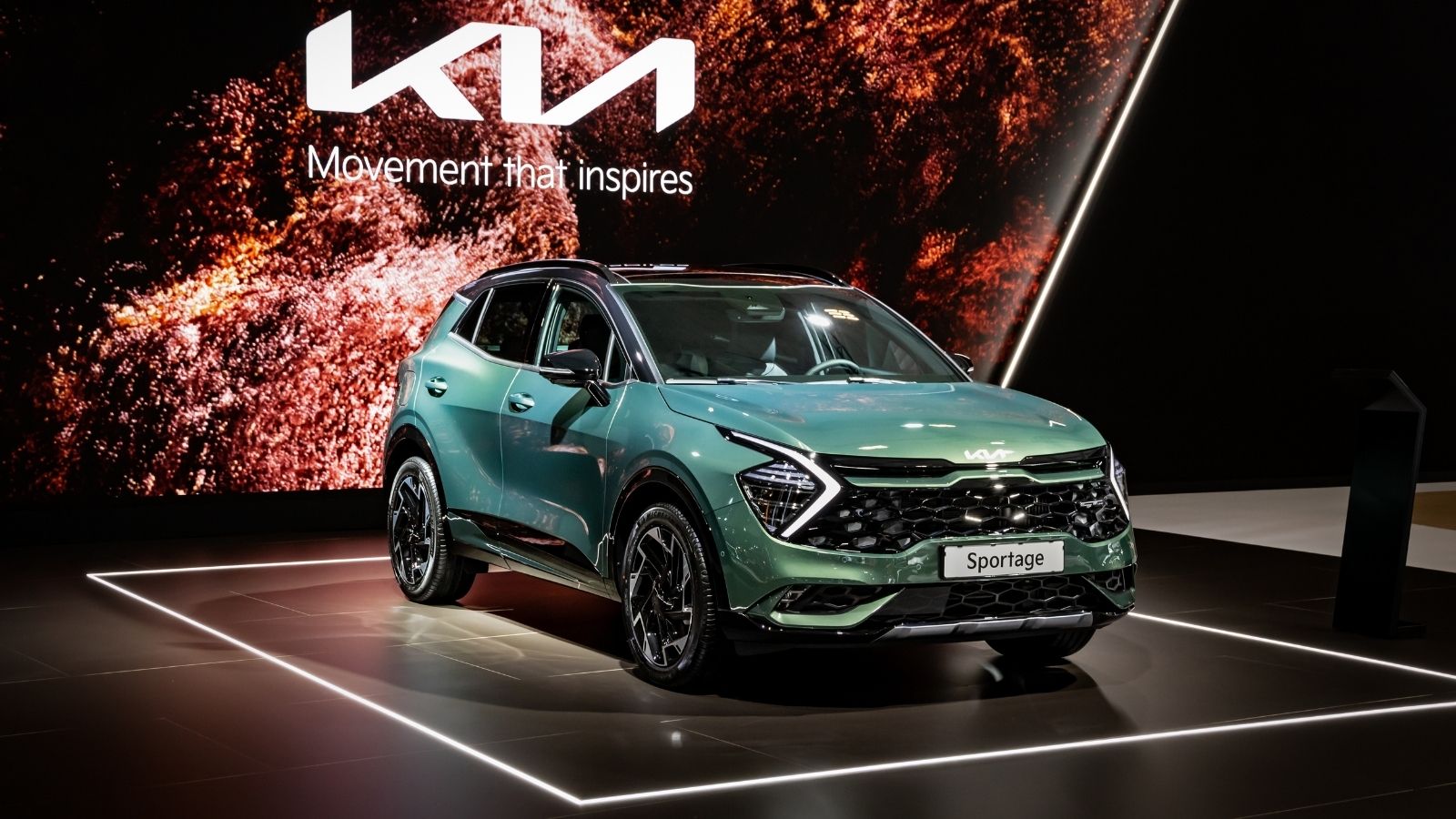
The 2023 Sportage redesign turned heads with its bold looks and tech-loaded interior, but that only served to age last year’s model even faster. The previous-gen Sportage was roomy but bland, with sluggish engine options and below-average fuel economy. Canadian buyers are increasingly drawn to hybrid and AWD options, both of which have improved with the latest refresh. As a result, used lots are filling with older Sportages, as vehicles that were desirable 12 months ago but are now quickly overlooked in favor of fresher competition.
Infiniti QX50
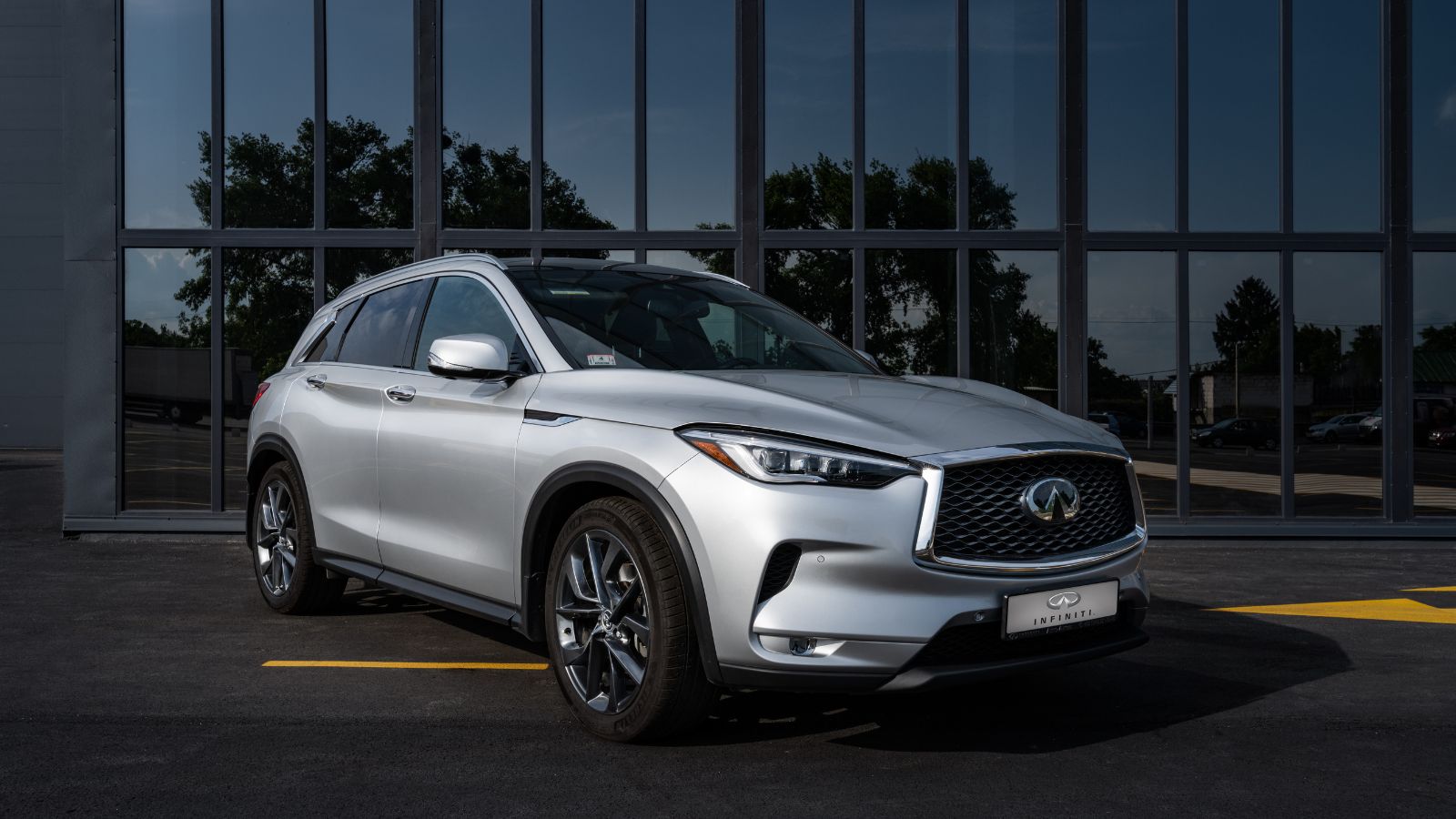
Luxury crossovers used to be the pinnacle of aspirational car buying in Canada, but the QX50 has struggled to maintain its position. Despite a powerful VC-Turbo engine and decent interior finish, the vehicle’s reputation has been marred by clunky infotainment, vague steering, and limited cargo space. Add to that a hefty price tag, and the QX50 has struggled to keep Canadians interested. In a market where BMW, Lexus, and even Genesis offer more complete packages, last year’s QX50 now feels like a questionable investment, especially on the used market.
Dodge Journey
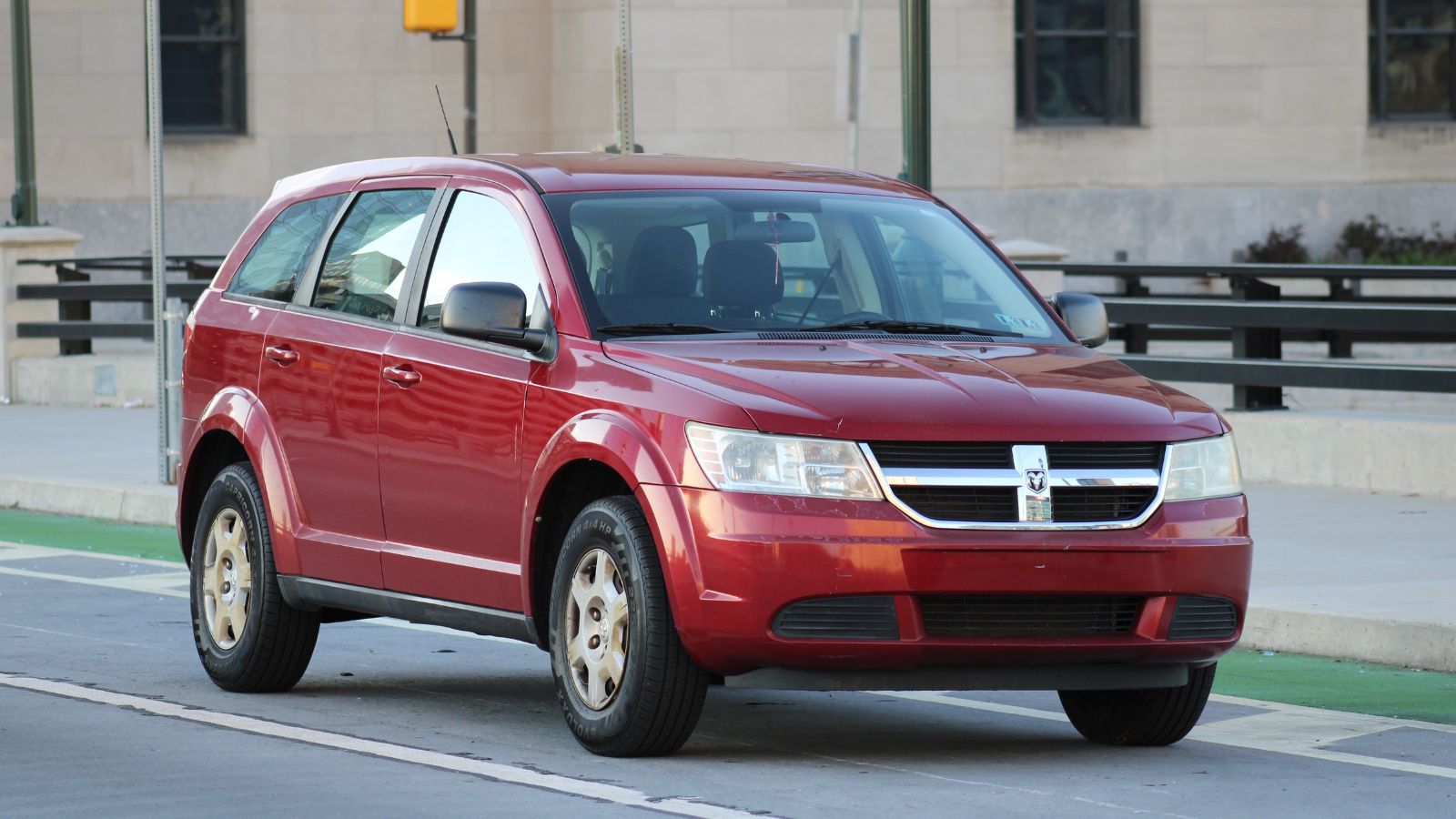
The Dodge Journey somehow managed to stick around far longer than expected, despite receiving minimal updates and widespread criticism. Canadians once appreciated the low price and roomy interior, but its lack of modern safety tech and dated design ultimately became impossible to ignore. Discontinued in 2020, many last-year models still lingered on lots in 2023, often at heavily discounted prices. However, even at a bargain, buyers have caught on to the weak resale value and frequent repair needs of these models. The Journey may have enjoyed surprising popularity in the past, but its time is clearly up.
Lincoln Corsair
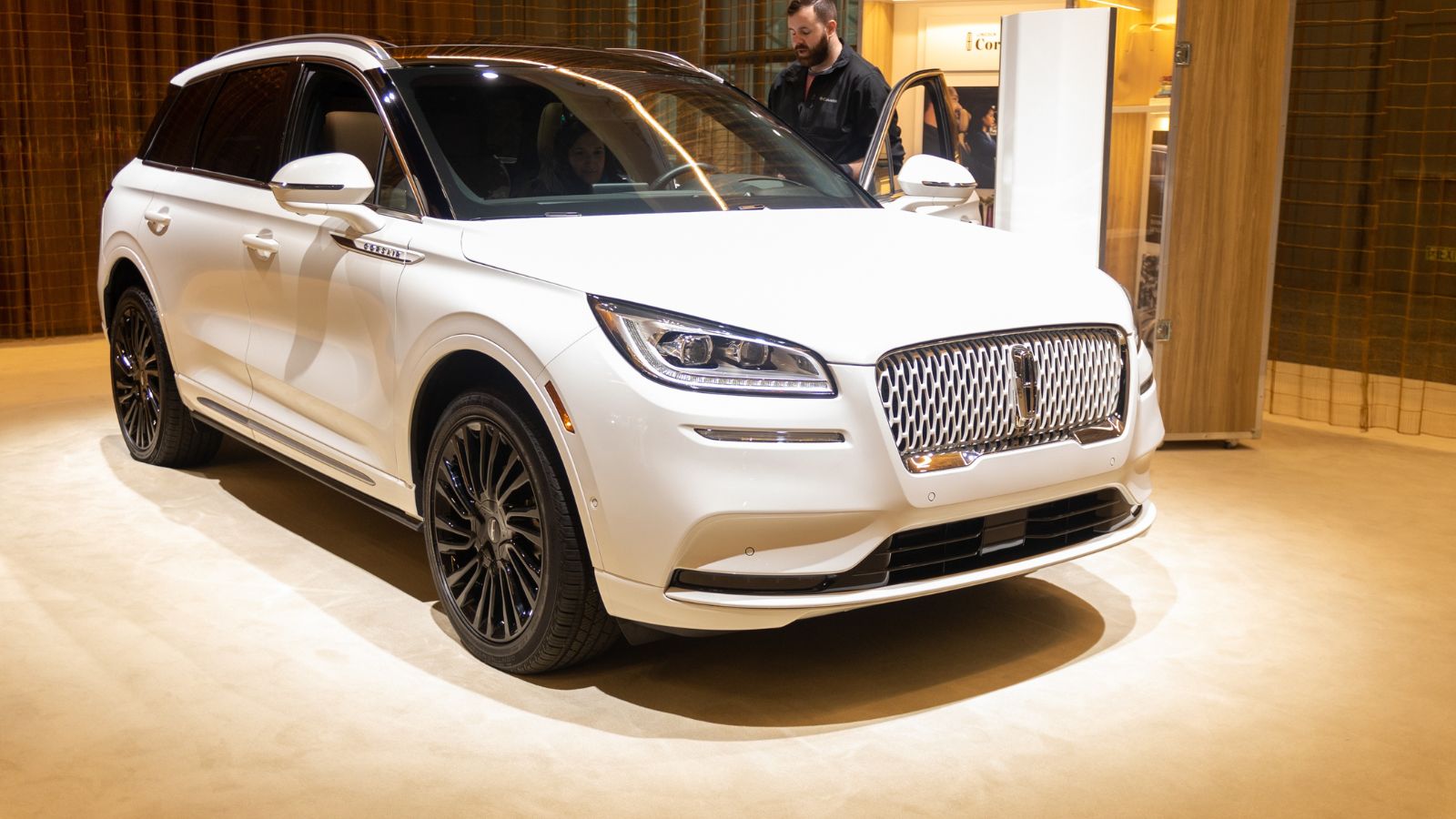
The Corsair once stood as Lincoln’s promise to deliver modern luxury in a compact package. But slow infotainment, average materials, and uninspiring performance left many Canadian drivers underwhelmed. For a premium crossover, it often felt more like a dressed-up Ford Escape. In a market increasingly turning toward electrification and bold design, the Corsair has been largely overlooked. Last year, it might have felt like a unique choice, but this year, it is outmatched by more exciting offerings from Audi, Volvo, and even Hyundai’s luxury Genesis lineup.
Mini Countryman
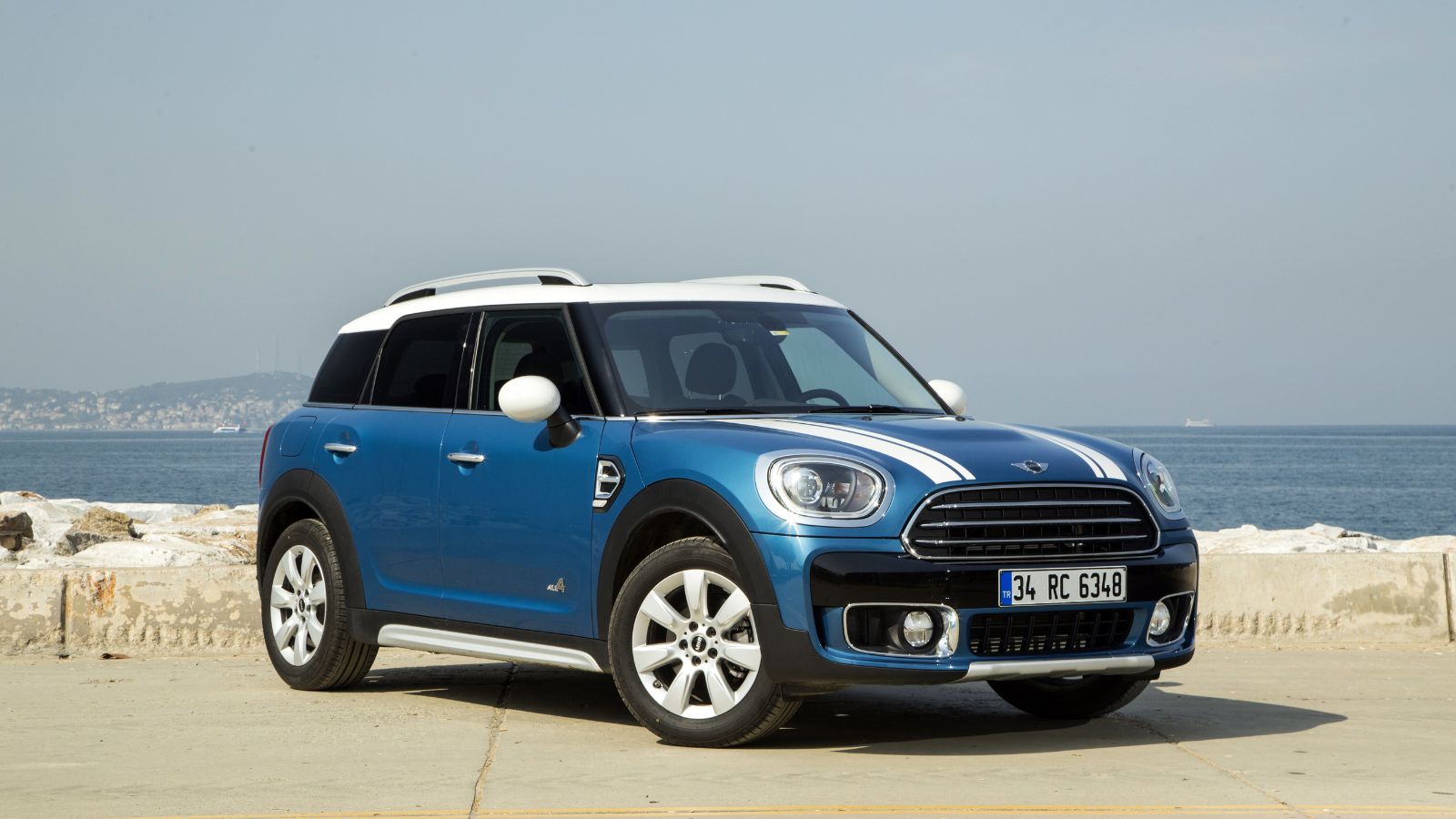
The Countryman mixed British charm with crossover practicality, but many Canadians realized too late that its style came with compromises. High repair costs, tight rear seating, and uneven winter performance have cooled enthusiasm. Despite its quirky interior and BMW-derived powertrains, it is not well-suited for the snow-heavy, pothole-riddled realities of most Canadian cities. Buyers seeking premium compacts have increasingly turned to the Volvo XC40 or the Lexus UX instead. The Countryman’s novelty wore off fast, leaving last year’s buyers with shrinking trade-in values and rising maintenance headaches.
Toyota Venza
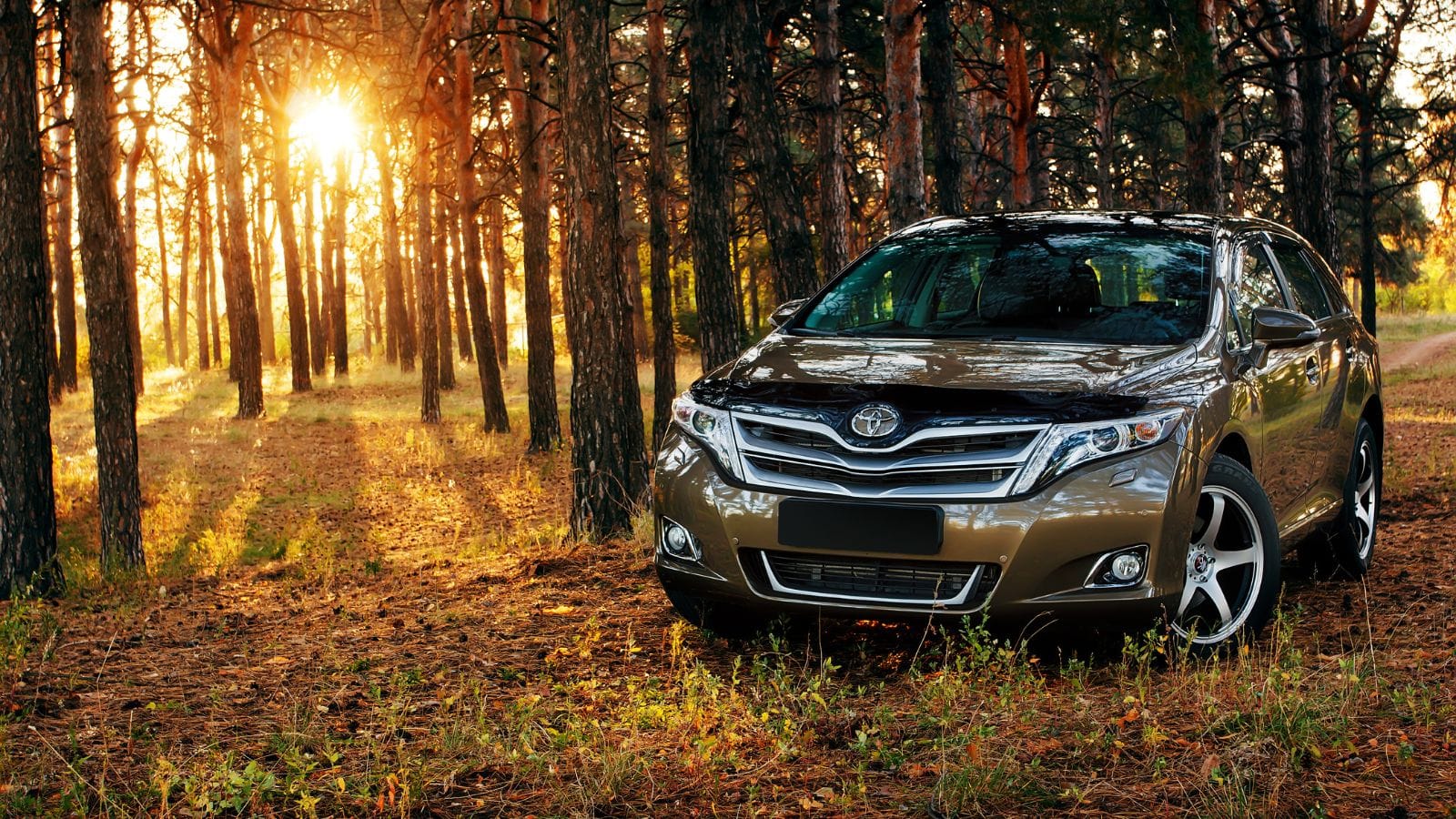
Reintroduced with hybrid-only power, the Toyota Venza initially captured the attention of eco-conscious Canadians. But lack of cargo space, limited towing ability, and a surprisingly tight cabin have curbed its momentum. While it remains efficient, the Venza’s swoopy styling has polarized drivers, and many now view it as an overpriced alternative to the RAV4 Hybrid. It is an excellent option on paper, but in practice, Canadians are finding better value and functionality elsewhere, especially in a market where utility and snow-handling remain top priorities.
Lexus NX 300
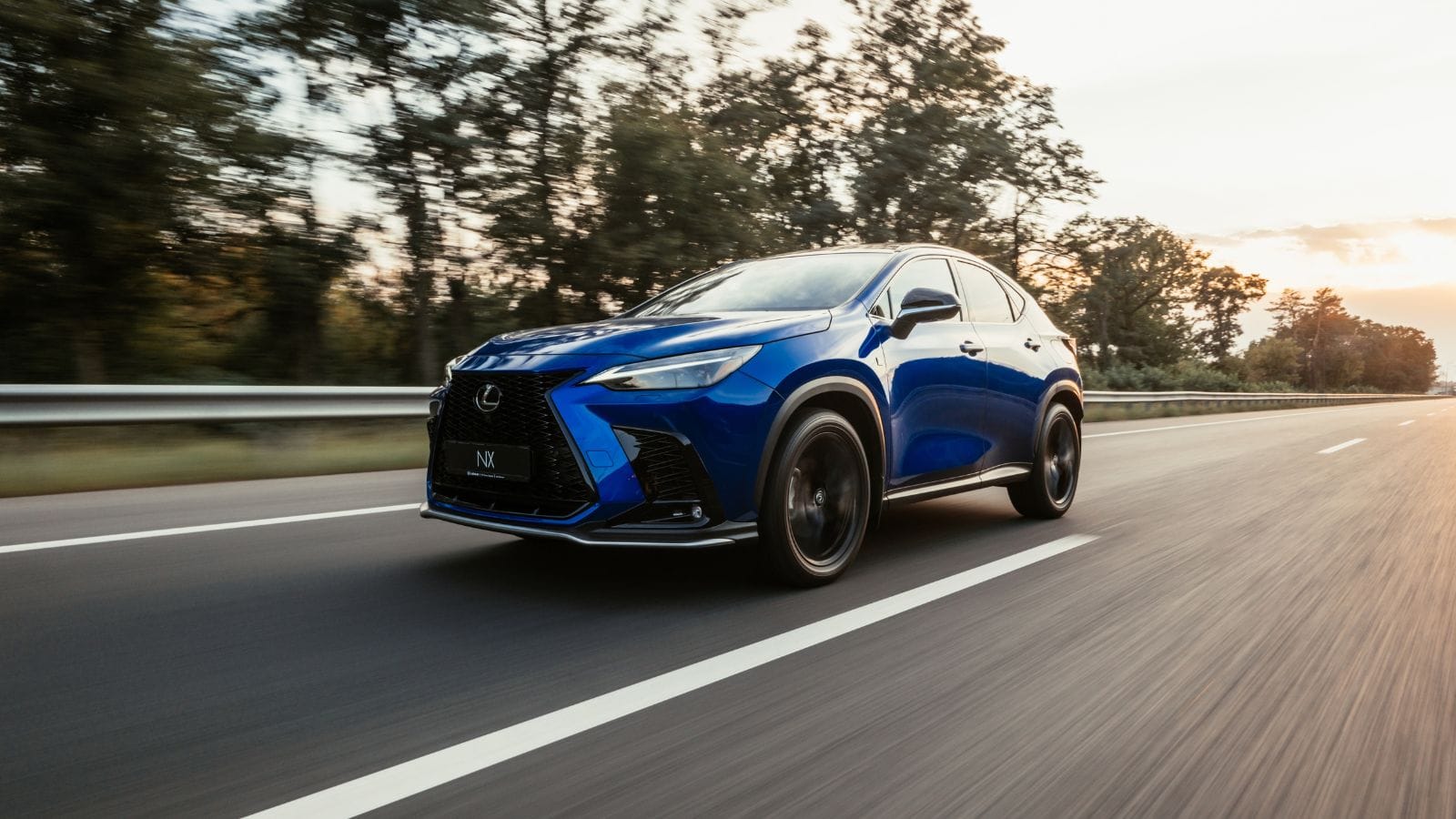
Despite its luxury badge, the NX 300’s ride comfort and clunky infotainment have aged poorly. While the new NX lineup has addressed many concerns, last year’s models are now seen as overpriced and underwhelming. The 2.0L turbo engine was decent but not particularly fuel-efficient, and the interface felt several generations behind rivals. Canadians seeking luxury now lean toward newer NX hybrids or competitors offering sleeker designs and smoother tech experiences, and for many, last year’s NX 300 is forgotten in a market that’s rapidly evolving.
Chrysler Pacifica Hybrid (as a crossover alternative)
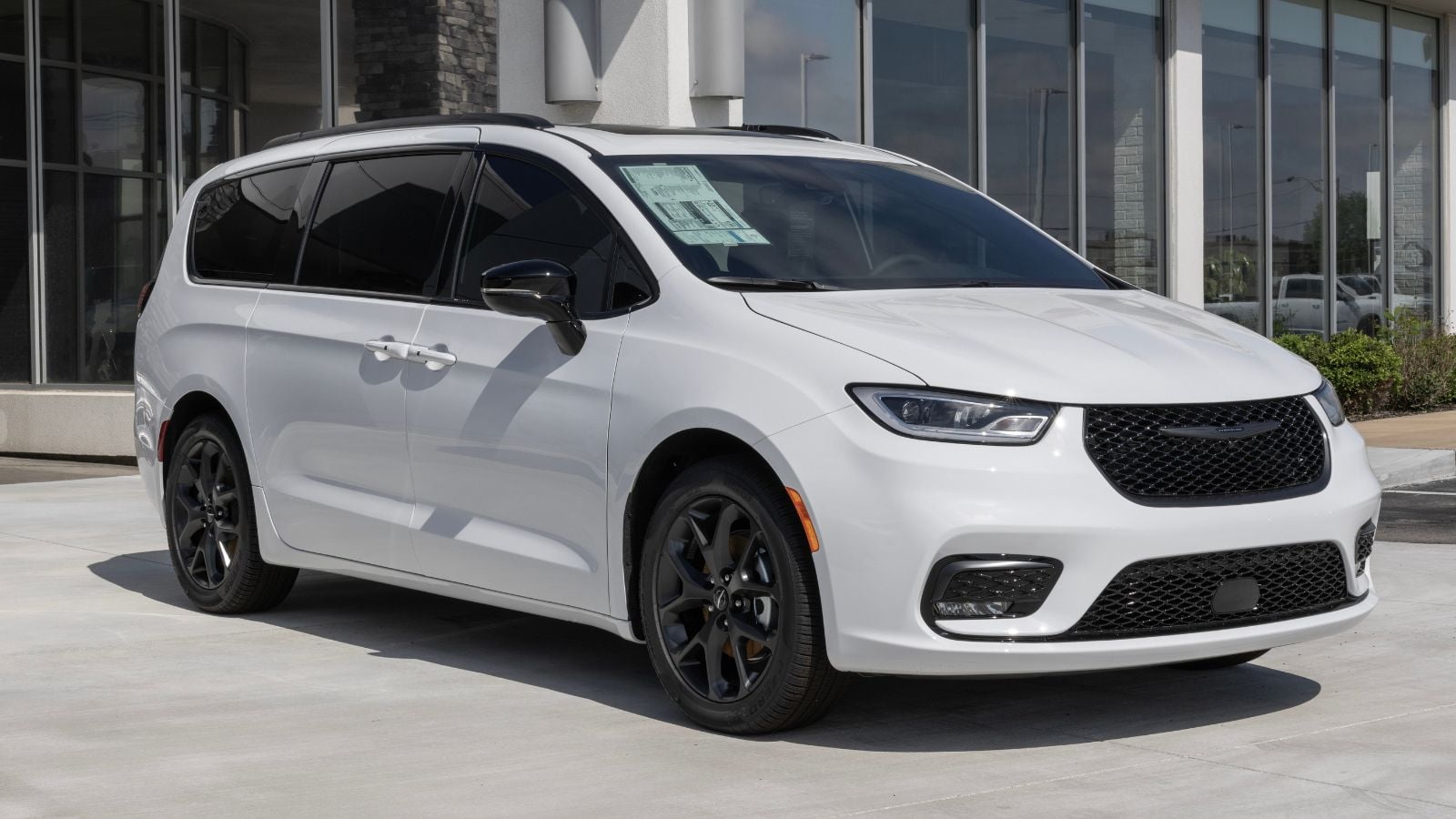
Though technically a minivan, many Canadians treated the Pacifica Hybrid as a crossover replacement for large families. Its initial promise of 50 km of electric range and family-focused design led to strong interest. However, issues with charging system reliability, expensive repairs, and high upfront costs have deterred buyers. With the rise of all-electric SUVs offering better range and AWD, the Pacifica Hybrid now struggles to justify itself in the rural and suburban markets it once appealed to.
Fiat 500X
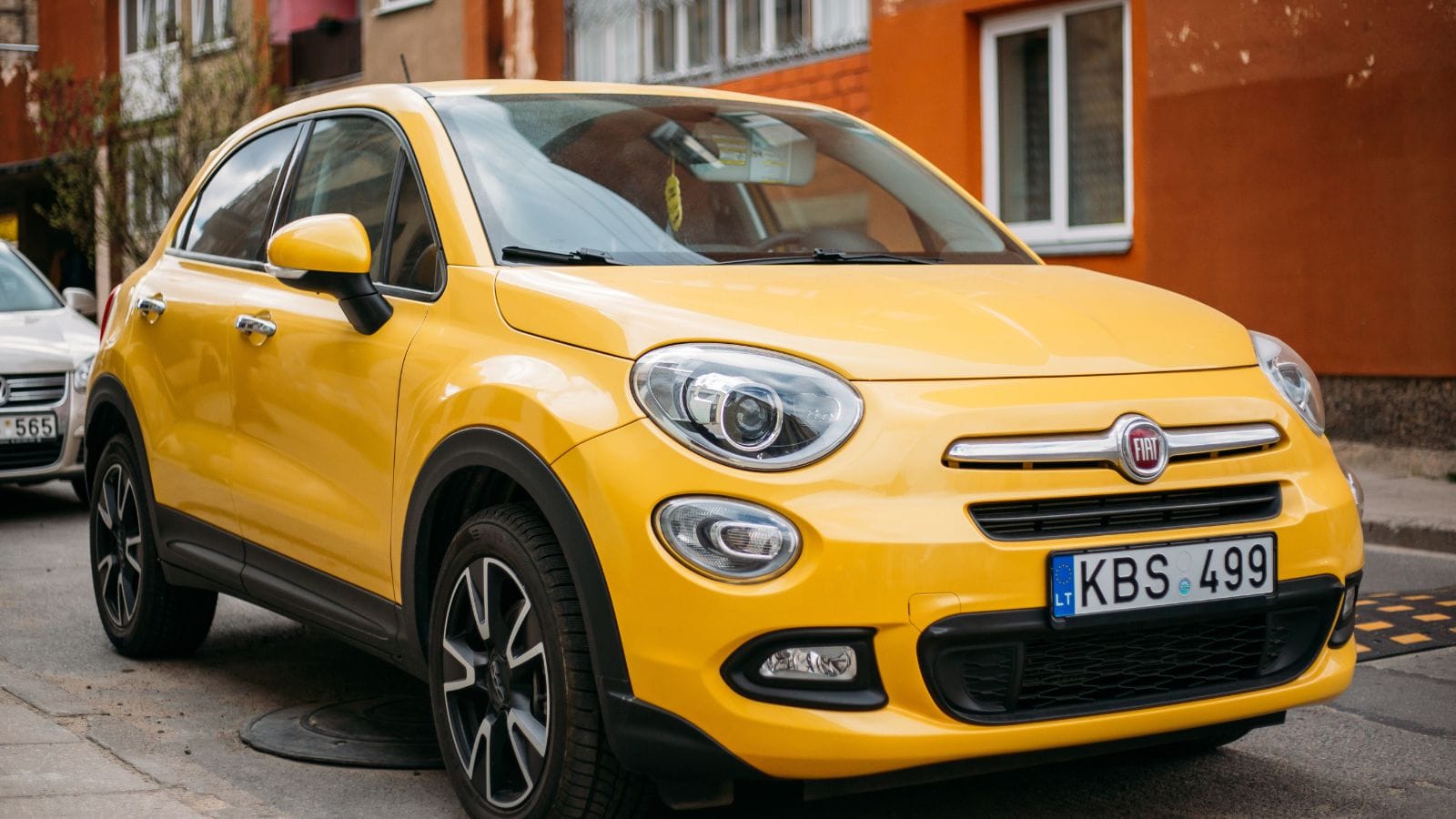
Quirky and compact, the Fiat 500X briefly drew attention as a European-flavored alternative to mainstream crossovers. But its small interior, subpar AWD performance, and rough ride did not translate well to Canadian road conditions. Add to that limited dealer support and weak reliability scores, and you’ve got a vehicle that fell out of favor quickly. Fiat has essentially pulled back from the North American market, and the 500X is increasingly viewed as a curiosity from a brand that never fully committed to the Canadian market.
25 Facts About Car Loans That Most Drivers Don’t Realize

Car loans are one of the most common ways people fund car purchases. Like any other kind of loan, car loans can have certain features that can be regarded as an advantage or a disadvantage to the borrower. Understanding all essential facts about car loans and how they work to ensure that you get the best deal for your financial situation is essential. Here are 25 shocking facts about car loans that most drivers don’t realize:
25 Facts About Car Loans That Most Drivers Don’t Realize
